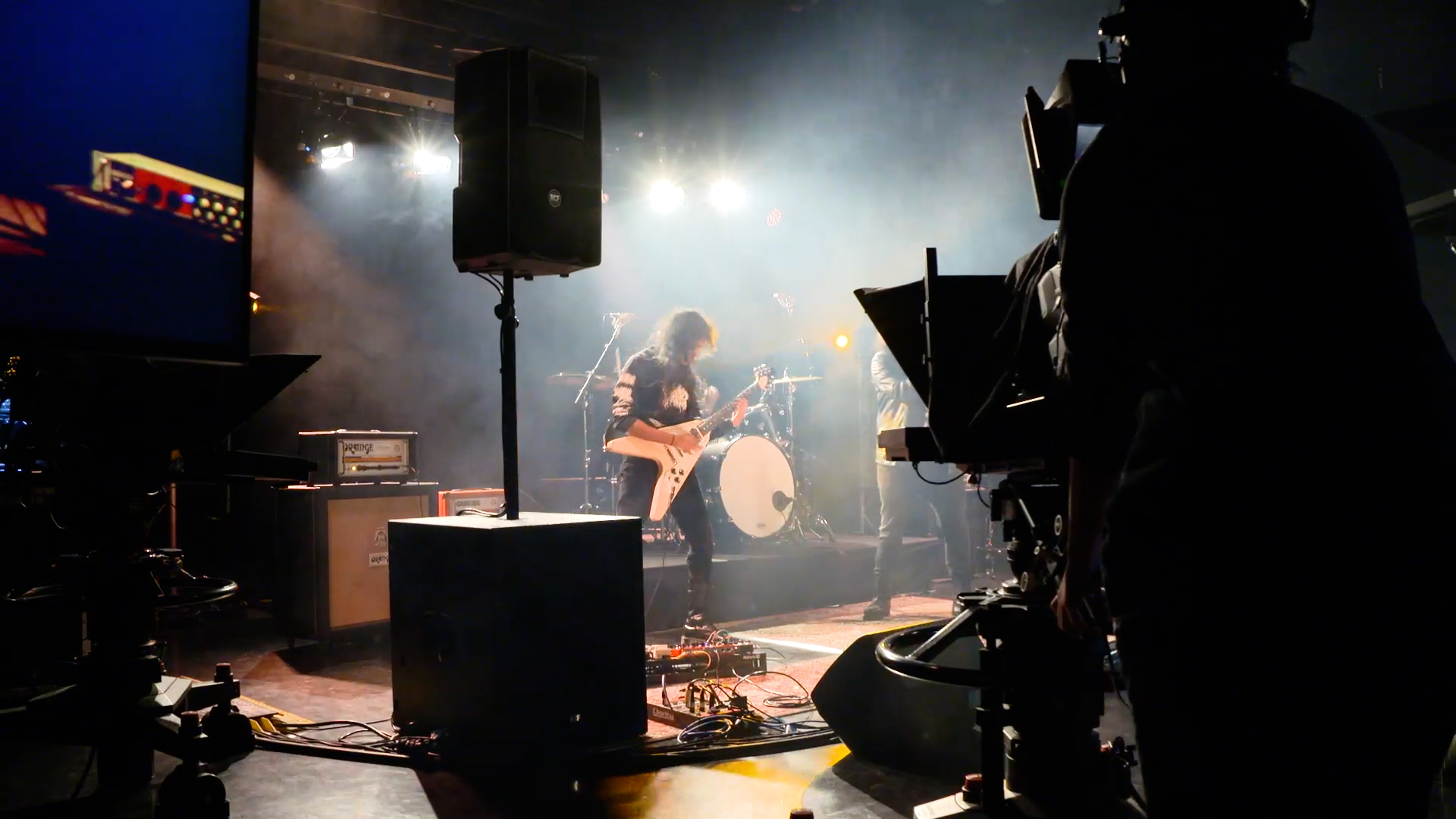In semester one you will learn to shoot different screen content, set-up and operate sound, vision and lighting systems, as well as manage teams, and establish workplace safety.
In semester two you will explore complex event technology design for sound, lighting and vision systems, as well as projection mapping on different surfaces like building facades. You will also develop specialist technical skills like sound balancing and hybrid broadcast streaming.
You will apply this knowledge in your Work integrated learning (WIL) subject, which forms an integral part of your studies. The skills you develop throughout the year will be put to use and assessed in a workplace context.
The WIL nominated subject for this diploma focuses on the installation and management of a lighting system. Through this experience you will gain exposure to a range of advanced processes, lighting hardware and interconnectivity standards. You will work on an industry-based project with entertainment professionals in teams, gaining invaluable experiences, contacts and feedback.


